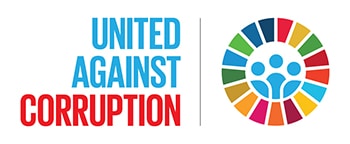Washington, D.C. December 6, 2016. This Friday, December 9th, the United Nations and anti-corruption organizations around the world will celebrate International Anti-Corruption Day. International Anti-Corruption Day annually recognizes the critical fight against fraud and corruption, and provides a venue to discuss new strategies for tackling these issues around the world. This year the United Nations Development Programme (UNDP) and the United Nations Office on Drugs and Crime (UNODC) have announced a joint global campaign: “United Against Corruption,” which focuses on how corruption impacts rich and poor countries alike and must be addressed through a unified international approach. The 2016 joint international campaign highlighted this in their statement on the campaign, “Fighting corruption is a global concern because corruption is found in both rich and poor countries, and evidence shows that it hurts poor people disproportionately. It contributes to instability, poverty and is a dominant factor driving fragile countries towards state failure.”
“Whistleblowers remain the key source of information on fraud and corruption at home and abroad. However, they still face retaliation in many countries around the world. We need to rally our efforts to ensure that whistleblowers are protected and empowered. The first step toward making that happen is to make sure whistleblowers and anti-corruption groups understand the tools they have available to them.” said Stephen M. Kohn, Executive Director of the National Whistleblower Center.
Corruption is the single greatest obstacle to economic and social development around the world. According to a joint report by the International Chamber of Commerce, Transparency International, the United Nations Global Compact, and the World Economic Forum Partnering Against Corruption Initiative, approximately 2.6 trillion dollars – the equivalent of five percent of global GDP – is stolen every year because of corruption. Corrupt practices cause a wide range of social, economic and development problems, including a lack of access to crucial public resources, services and infrastructure, the distortion of market competition, and the destabilization of entire states. The National Whistleblower Center is committed to fighting fraud and corruption around the world by educating and empowering as many whistleblowers as possible.
Related links:
